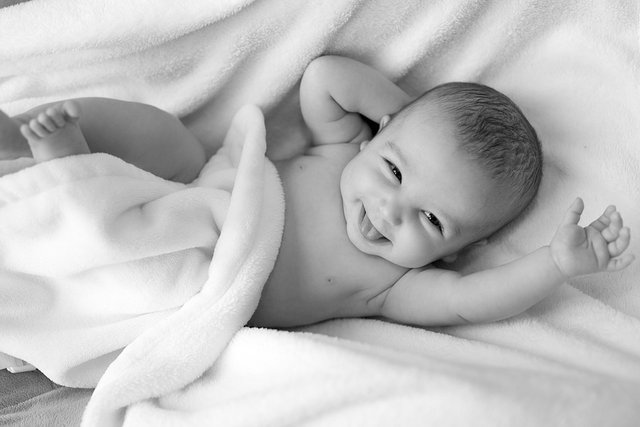Rebellious Teenagers are just Misunderstood
Rebellious Teens aren't actually Rebellious

Image courtesy of Riala on Pixabay
As parents or people looking to have children, everyone sees but one major challenge: Handling their children when they enter into their Rebellious Teenage years. Parents dread the fact that handling their children is going to become so much more difficult and that they might lose their grips on them. Well, I'm here to assure you that it is something which is bound to happen. Not a very hopeful reassurance for most parents, but there is also a reason behind that.
Teenagers aren't really rebellious. They're merely increasingly autonomous than they were before. And the fact that we find them rebellious and fear losing control over them is simply because of the way we've cultivated our own thinking over the years of parenting leading up to our child's adolescence. To understand the full scenario, we must travel back to the very roots of parenting.
New Life: So Young and Fragile

Image courtesy of Pexels on Pixabay
Imagine yourself as a part of a married couple who's about to have a baby. Everything's going fine and then one fine day, the wife's water breaks. The wife goes through labour, and then after hours, the long-awaited moment has finally arrived. The baby is finally born and is quite a healthy one at that! A few days pass with the baby crying every now and then whenever it wants food, a change of diapers, or practically anything else. Then, a realisation suddenly dawns on you. You come to realise, the responsibility which you carry in choosing to raise a baby. Furthermore, you also realise that the baby is completely dependent on you for everything, no matter how simple the necessity.
Every parent eventually finds this realisation at some point in their parenthood. But that is not the reason why adolescents seem rebellious. The reason lies in carrying the same mentality through an ever-changing world where the subject keeps constantly growing and evolving.
Once you realise that your child is dependent on you, you begin meticulously guiding its each and every step. You take complete control of your child, lest something disastrous happens. Even the child is willingly dependent on you. It sees you a secure base; a safe haven from all that is to be found in the outside world. You begin telling them right from wrong. Knowingly, or unknowingly, you form your own system of reward and punishment. A 'good deed' or any act which is in accordance with your wishes is rewarded, while all else is punished.
At this early stage of infancy and toddlerhood, it is important. The child doesn't know what's good for it, let alone right from wrong. It is still playing and learning from the world around it, and imposing restrictions on the world is simply for its own safety. However, problems start when the child grows older and starts turning into a young man or woman.
Exapnding Horizons and Autonomy

Image courtesy of huweijie07170 on Pixabay
Through years of guiding our children, we gain a mentality of setting boundaries for them, keeping them safe, and telling them what to do and what not to do. Surely it is a much safer way for the child to grow. However, unless the child experiences things for its own, it'll never really learn anything either. As the child grows older, it starts to become increasingly more self-aware. It starts to have a more accurate idea of what it wants and what is right and wrong. It may yet make mistakes, but none of them would involve the child trying to shake hands with an eighteen wheeler in the middle of a highway. However, our mentality towards raising the child remains the same.
We would still like to guide the child through everything that we can while imposing boundaries and setting up reward and punishment schemes when the child clearly requires a much larger area to play around in. Perhaps the most fatal mistake which a parent makes is looking at their child as the same infant that they raised years ago even though the child has surpassed all stages and moved on into adolescence or even adulthood in many cases.
Now when a child reaches adolescence and hits puberty, it can suddenly feel a lot of things for the first time in its life. It finally begins to truly understand the nature of desire. It yearns for freedom and autonomy. It years to connect outwards to the world and grow closer to its parents. Its horizons expand spontaneously like an atomic bomb dropped on to a city. It suddenly feels more desire than it felt before, and now the teen has a much more urgent necessity: Expression of these desires.
What was suddenly seemingly human, but more of a pet has suddenly turned into an autonomous entity with their own thoughts, desires, and feelings. This teenage now wants to think, feel, and do more on its own than what it was once allowed to do. It wants to grow through playing like it always has, but it wants to do so without a secure base or boundaries built for its safety. It has enough sense now to pull it off, rarely ever relying on its parents for support.
Parents, however, having seen their child since birth, have programmed themselves into behaving the same way again and again despite the everchanging and growing needs and desires of the child. As a result, the child can no longer fit the boundaries set for it and desires to break free of it. It wants to learn more on its own. It a has become a self-functioning adult capable of doing things on its own. However, the habits of the parent are what keep them from flourishing to their greatest potential. Under such circumstances, the autonomy of the teenager can easily be seen as rebelliousness, especially when you take into account how the parent is so used to guiding and instructing the child through every single thing that it does.
The Fix

Image courtesy of Greyerbaby on Pixabay
The solution at this stage is simple. The need for a secure base is more or less over. The child has already learned what it could while remaining inside boundaries. It is time to let the child go and explore the wilderness on its own and make its own mistakes.
At this point, the most important thing is being not an authority figure to your child, but rather, being a friend. It is no longer your job to guide the teen around. The teen knows the way and can guide itself, even though it may get lost here and there from time to time. Your job is to be supportive and encouraging and to step in to save your teen only from certain doom. Let the teen make its own mistakes, and support its rise if the teen seems unable to rise back up from the toll of failure. There is no call to impose guidance and restrictions on the teen, lest it may lead to disastrous results. After all, mistakes are the way to adulthood. If you wouldn't like someone constantly telling you what to do and what not to do, what makes you think that your teen would like it?
Parenthood is a job of great selflessness and self-sacrifice. Doing it with expectations shall only lead to failure. While it is essential to guide your child when necessary, what is most important is to be their friend first and foremost. Only then, can you and your child both develop together. Otherwise, it may lead to a lot of problems and complications in your future relationships.
"If you love someone, let them go. They'll be with you if they love you back."
Thank you for reading this. These were a few thoughts of mine upon the topic of parenting and raising teenagers. It is essential to let humans be humans and let them grow and thrive. Otherwise, things can turn sour in an instant in a seemingly beautiful relationship.
great short read & so on point. teen rebellion is similar to being caged & the cage has been outgrown. i, myself havent yet let go of the strings. im such a paranoid parent :(
It happens especially when you're used to behaving in a certain way. However, what has been done can also be undone in quite the same way.
Congratulations @grimfangs! You received a personal award!
Click here to view your Board
Do not miss the last post from @steemitboard: